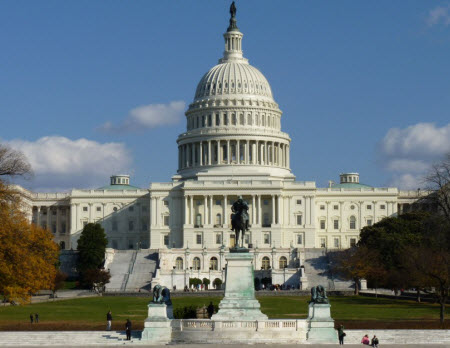Rep. Maloney: Pandemic Business Insurance is Doable
Said Congress needs to step in to help businesses, including TV and film

The smarter way to stay on top of the multichannel video marketplace. Sign up below.
You are now subscribed
Your newsletter sign-up was successful
Rep. Carolyn Maloney (D-N.Y.), co-sponsor of the Pandemic Risk Insurance Act of 2020, told a virtual House hearing audience Thursday (Nov. 19) that Congress needed to step in to make sure businesses could be insured against future pandemic-related losses.
She pointed out that after the 9/11 terrorist attacks the New York economy completely shut down because insurance companies would not insure any property against terrorist attacks, after which Congress stepped in. She said that was what she was trying to do with her legislation.
Pandemic insurance has the backing of video programmers and distributors also facing pandemic-related insurance issues. They banded together this week to push for congressional action.
Maloney, who is chair of the House Oversight and Reform Committee, said that entire industries, including film and television, "have been upended and have no way to protect themselves from future pandemic-related losses.
Business interruption insurance currently excludes pandemics, she pointed out, and does not cover damages that are not to physical property.
She said the government would have to step in during the next crisis, so "why not be pro-active and develop a long-term solution."
The bill would provide a federal backstop for pandemic coverage in business interruption policies and remove virus exclusions from commercial property policies.
It would be a voluntary program. Business would not have to offer pandemic coverage, but if they did would get government help.
She said a broad consensus has emerged, that incudes insurance companies, that pandemic risk is insurable with an "appropriate" federal backstop. She said the only issue now is how to structure the program, and she was willing to work with anyone on either side to get that done.
Ranking member Steve Stivers (R-Ohio) said that since this is about the next pandemic, it is critical that they get the bill right rather than that they do it fast. He said that they should take a step back and not try to achieve a predetermined outcome.
Stivers also said any solution should look at one-time event cancellation, which is not in the current legislation. While the Maloney bill is modeled on Congress' response to 9/11, Stivers said pandemic losses are on an order of magnitude greater.
John Doyle, CEO of Marsh, the nation's largest insurance broker, supported a pandemic insurance public-private partnership, but suggested it could start now rather than wait for the next pandemic. He said acting now would speed recovery by providing more confidence in the marketplace. He said starting now would "bend the risk curve" for future pandemics.
Witness Michelle Melendez McLaughlin, chief underwriting officer at Chubb North America, said her company had some ideas about a framework for coverage. She said that, for small businesses for example, it would provide pandemic coverage for up to three months of payroll, plus rent and utilities. Claims would be paid automatically when the policy was triggered. Policy holders would only pay for the private portion, not the government assistance.
R. J. Lehman, executive editor and senior fellow at the International Center for Law and Economics, said he was not sure insurance, rather than direct assistance, was the best way to deal with a pandemic's impact.
He said that insurance was a system of risk transfer and not a system of economic assistance and that while there may be a role for government, there are limits to its efficacy of business interruption insurance to mitigate a pandemic impact since only a third of businesses even have business interruption insurance and less than that would buy pandemic insurance.
He said the best argument for a public private partnership is that insurers can help business holders mitigate risk, but that the risk they are trying to reduce is that a business will shut down, "but in a pandemic we want businesses to shut down. We want them to have a safety net so that they can shut down and survive and not lobby to lift lockdown orders because that is how you get the situation where schools are closed but bars and gyms are open."
While he said he has long preached the gospel of risk-based insurance, he said the government does not want this to be a risk-based program. "That would mean tech firms that work remotely would pay the least but restaurants, community theaters and churches would pay the most. I don't think that is the outcome you want."
The smarter way to stay on top of the multichannel video marketplace. Sign up below.
Contributing editor John Eggerton has been an editor and/or writer on media regulation, legislation and policy for over four decades, including covering the FCC, FTC, Congress, the major media trade associations, and the federal courts. In addition to Multichannel News and Broadcasting + Cable, his work has appeared in Radio World, TV Technology, TV Fax, This Week in Consumer Electronics, Variety and the Encyclopedia Britannica.

